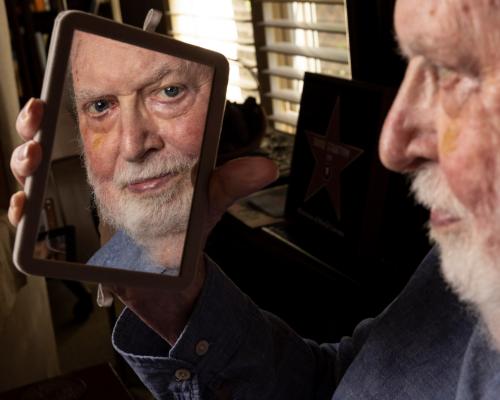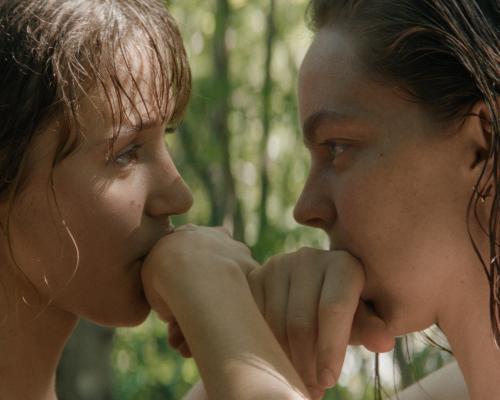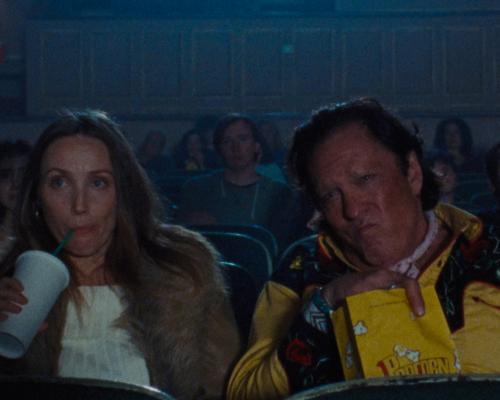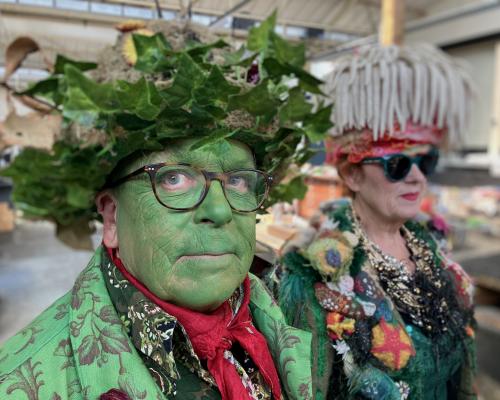
For a long time, every cinephile in Australia – myself included – wanted to be David Stratton, the beloved critic who has died at age 85. And not just because that would involve being paid to watch and talk about movies – Stratton, of course, being beamed into lounge rooms across the country with fellow critic Margaret Pomeranz.
We wanted to be him, aspired to be him, because of the values he represented and the manner with which he held himself. Stratton was deeply learned but approachable; polite but at times wonderfully feisty; and above all else deeply passionate about film. That passion was infectious, and his contributions to cinema culture in Australia are immeasurable.
Stratton had many strings to his bow, including a long-running stint as director of the Sydney film festival (from 1966 to 1983), and an even longer stint teaching a film course at the University of Sydney’s Centre for Continuing Education, which he ran for 35 years. But for me, as a teenager in the 1990s – in the earliest years of cutting my teeth as a critic – it was his film reviewing on TV that I found most inspiring.
Like many others, I tuned in religiously to “David and Margaret”, as we fondly referred to the Movie Show and, later, At the Movies. They had excellent chemistry: the former a little more mannered, the latter a bit more playful, and the combination irresistible. I spent much of the time waiting, hoping for them to argue with each other (you know you did, too).
All critics are strongly opinionated and perhaps a little sniffy-sounding from time to time; it’s in the job description. One of the great things about Stratton was that you could always feel his criticism coming from the right place – a place of passion and love.
I met him for the first time, many years ago, at a Melbourne film festival opening night party at the (long gone) Greater Union cinema on Russell Street. I nervously introduced myself; he was affable and very easy to talk to. I remember asking him, perhaps a little cheekily, whether his well-known distaste for handheld photography might be partly a generational thing. I expected him to demur, but he said this may well have been the case. Stratton was like that: he always seemed willing to consider another person’s perspective, and to reassess his own.
When I spoke to him for the last time in November last year, he reflected on changing his mind about the classic Australian comedy The Castle. Stratton told me he initially “thought it looked like a telemovie” and awarded the film one and a half stars. But after returning to it a couple of times, he came to the party: “I think Tiriel Mora is hilarious, talking about ‘the vibe’,” he said. “Things can improve when you look at them a second or third time.”
Once, many years ago, Pomeranz invited me as her guest to a film critics event held at Paddington RSL in Sydney. When Stratton joined us for a few wines beforehand, we had a wonderful time and I discovered a more comedic, slightly acerbic side to him. He could be quite funny – sometimes in self-deprecating or unexpected ways, privately as well as publicly.
Take, for example, Stratton’s hilarious cameo in the satirical comedy series Review With Myles Barlow, about a TV host who reviews absolutely anything. In one scene, Stratton zings “the best thing for you to do would be to review your own retirement,” before he and Barlow get into a (very realistic-looking) punch-on.
There’s also the title of Stratton’s 2008 memoir, I Peed on Fellini. In the preface, he recounts a story about how the legendary Italian auteur stood next to him at a urinal at the Venice film festival in the 1960s. In his excitement to introduce himself, Stratton “turned towards the great man” and “peed all over his shoes”.
But perhaps the part of the book that best represents Stratton’s character, and his insatiable desire to share his love for motion pictures, arrives at the very beginning. He dedicated the book to his children, grandchildren, nieces and nephews, as well as “all young people passionate about cinema”.
He truly made so many of us passionate about cinema. His legacy lives on.







